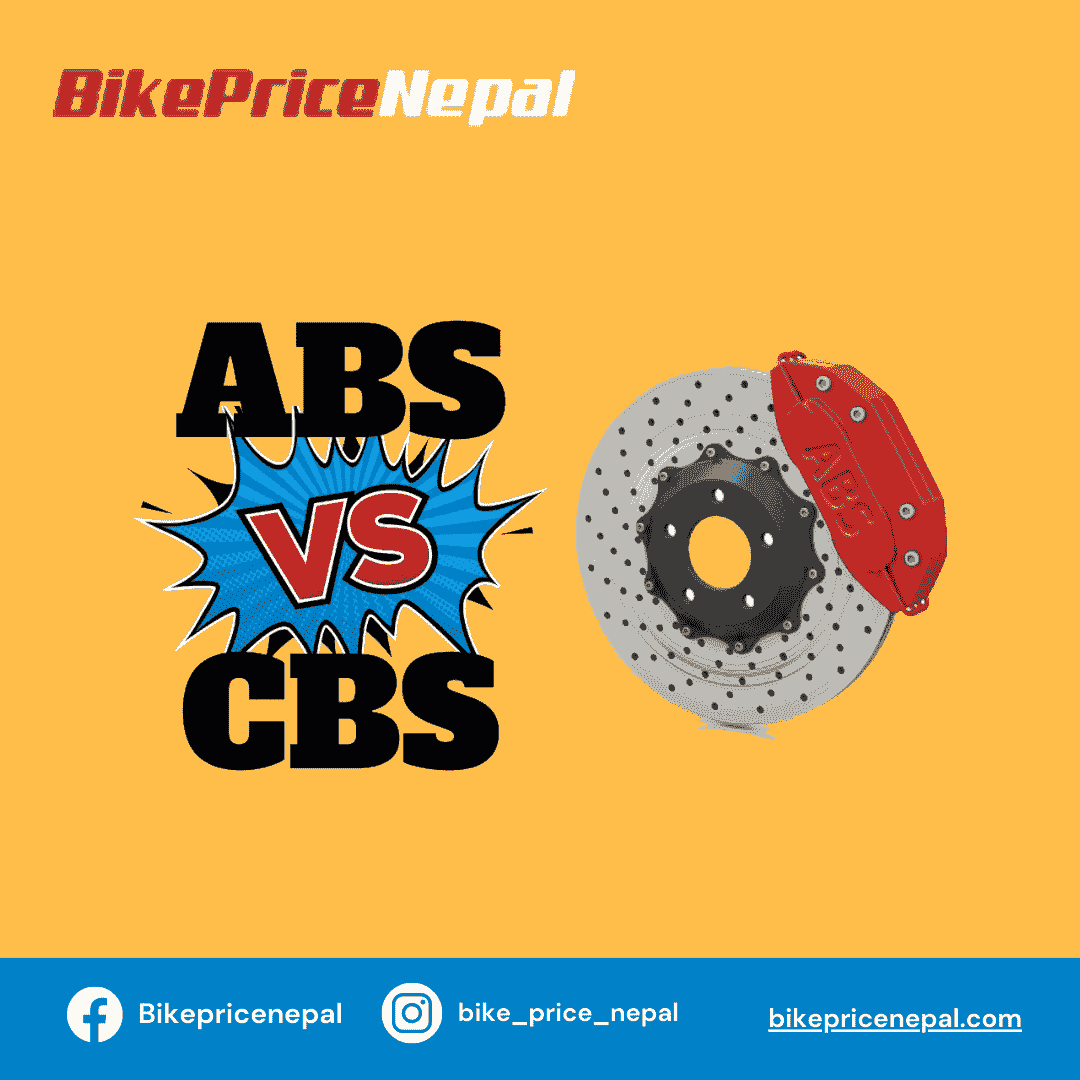ABS VS CBS

Anti-Lock Breaking Systems Vs Combined Breaking Systems
When it comes to braking systems on motorcycles, there are two main options available - Anti-lock Braking System (ABS) and Combined Braking System (CBS). While both systems aim to enhance the rider's safety by improving braking performance, they do so in different ways. In this article, we'll explore the differences between ABS and CBS, and which one might be the best option for you.
What is the Anti-lock Braking System (ABS)?
ABS is a safety system that prevents the wheels of a motorcycle from locking up during hard braking, especially on slippery or uneven surfaces. The system is designed to detect when the wheels are about to lock up and momentarily release the brake pressure to allow the wheels to spin freely, thus preventing skidding and loss of control. ABS relies on sensors located on each wheel that measure the speed and direction of the wheel and a control module that processes this data and controls the brake pressure.
ABS is an active safety system, which means that it operates automatically and independently of the rider's actions. Once installed, the rider doesn't need to do anything differently while braking. However, ABS does not necessarily reduce the stopping distance, but it can help maintain control over the motorcycle in emergency situations. ABS is available in two forms for two-wheelers, namely single channel and dual channel.
What is the Combined Braking System (CBS)?
On the other hand, CBS is a braking system that links the front and rear brakes together so that both are applied simultaneously when the rider presses the brake lever or pedal. This system is designed to distribute the braking force evenly between the front and rear wheels, which helps to reduce stopping distance and improve stability.
CBS is a passive safety system, which means that it relies on the rider's input to operate. CBS is activated when the rider applies the brake lever or pedal, and the system distributes the braking force between the front and rear brakes according to a predetermined ratio. Typically, the front brake receives more of the braking force than the rear brake, since the front brake is more effective at stopping the motorcycle.
ABS vs. CBS: Which one is better?
Both ABS and CBS have their own advantages and disadvantages, and the choice between the two largely depends on the rider's personal preference and riding style.
The Anti-Lock Braking System works by sending pressure to calipers when you apply brakes, and using sensors both in the swing arm and fork with slotted rings, the Electronic Control Unit calculates the brake pressure. Both brakes can be applied simultaneously during an emergency to prevent the wheels from locking up. In essence, this gives the rider enough time to react so that the vehicle is stable and controlled. You only need to ensure that your bike's tyres are in good shape if you want to travel a short distance.
A Combi Brake System, on the other hand, won't affect braking distance. There is, however, a slight reduction in the rider's reaction time. The CBS system works best with a good brake system and sticky tyres. CBS has also proven to be very useful for most novice riders, and it works well within city limits.
ABS is an excellent choice for riders who frequently ride on slippery or uneven surfaces or who ride in wet or snowy conditions. ABS can help prevent skidding and loss of control, which can be particularly important in emergency situations. However, ABS can add extra weight and cost to the motorcycle and may require more maintenance and repair than a non-ABS system.
CBS, on the other hand, is a great choice for riders who want to improve stopping distance and stability, particularly in normal riding conditions. CBS can help distribute the braking force more evenly between the front and rear wheels, which can improve handling and reduce the risk of skidding. However, CBS can also make the motorcycle more difficult to handle in emergency situations since the rider may need to apply more pressure to the brake lever or pedal to achieve the desired braking force.
Finally, the main question arises: which is better in real-life scenarios, CBS or ABS? ABS, or Anti-lock Braking System, is clearly superior to CBS, but it is also significantly more expensive. While CBS only aids in effective braking by using both brakes, ABS is far safer because it prevents the wheel from locking up in harsh braking situations.
Ultimately, the choice between ABS and CBS comes down to the rider's personal preference and needs. Both systems offer improved braking performance and safety and can be a great addition to any motorcycle. However, it's important to consider the pros and cons of each system before making a decision.
